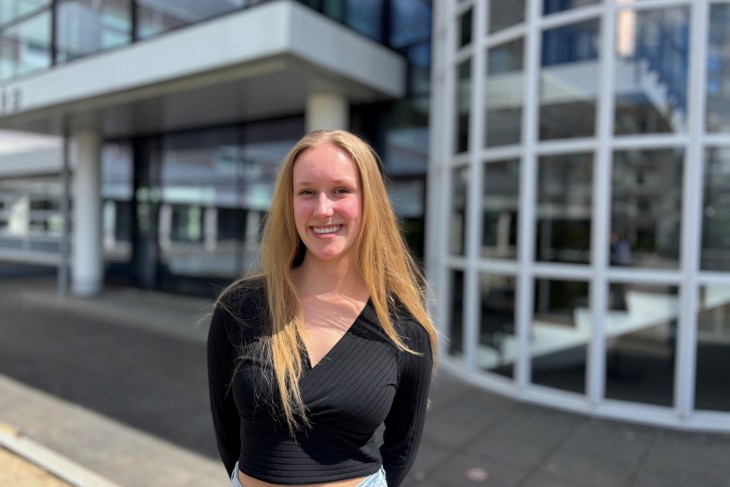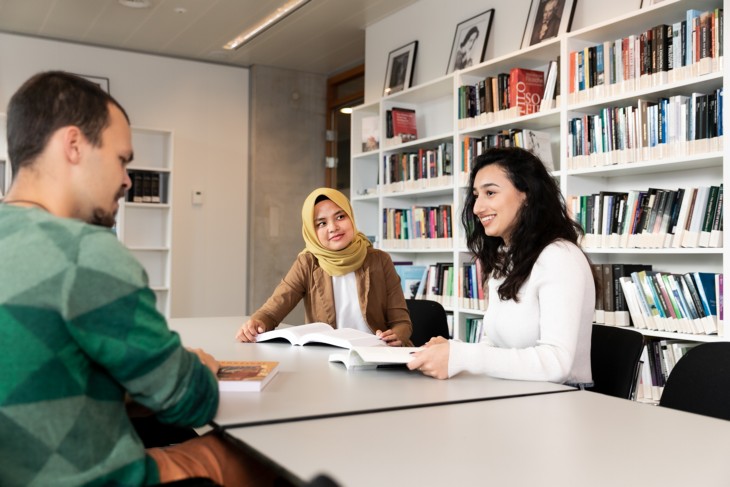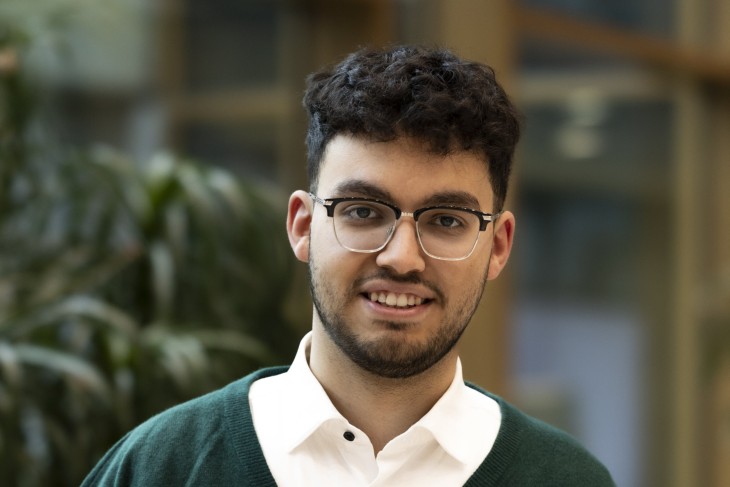“In high school, I was interested in chemistry, physics, and maths, so I was seeking a bachelor's programme that combined those subjects. I was considering biomedical engineering, chemical engineering, and even pharmacy, however, I thought they lacked the large-scale industrial applications I was looking for, such as designing innovative energy storage solutions and biodegradable packaging materials.
When I found the Bachelor’s in Chemical Science & Engineering at the University of Twente, I thought it was a perfect fit: chemistry is the starting point, but I'm also learning engineering aspects and how to apply the knowledge on a large scale. For example, how can I design a factory that produces chemicals in a more eco-friendly way?
What I also like about the programme is that it prepares you to make up your mind about whether you want to pursue process engineering or materials science. Process engineering is about designing and optimising processes to produce chemicals on a large scale, whereas materials science is about studying different materials, such as metals, to understand their properties and how to use them for specific products, like stronger batteries.
Sustainable future
Chemical Engineering & Science is super important because it offers solutions to global problems like too much carbon dioxide in the air. As a chemical engineer, you can develop carbon-capturing processes and materials. For example, it's possible to design materials capable of filtering carbon dioxide (CO2). The collected CO2 could then be used as a material for the production of other chemicals, such as fertilisers.
As part of materials science, I’ve developed an interest in batteries. I’m learning about the chemistry and materials needed to create and improve them. I particularly enjoyed a project where I designed and tested a battery in a lab. It was satisfying because I had a lot of freedom to experiment and see how different materials affected how much energy the battery stored and how much it converted to electrical energy.
Practical projects
What I enjoy most about the programme is that you apply what you learn in lectures to tackle real-life problems. For example, in one project, my group members and I had to design a chemical plant producing methanol. We had to figure out lots of things like what reactors to use, which raw materials were the best, and how those choices would affect the quality of the product, the environment, and the costs. It was a practical project that gave us a glimpse into what working as a process engineer would be like.
My challenges
In high school, it's easier to get the highest grades and be a perfectionist if you want to. But at university, trying to be the best at everything can take a toll on you. The hardest part for me wasn't understanding the concepts or staying on track with studying but learning to prioritise my tasks. Which tasks need more effort, and which could I do in less time? I see other students struggle with this, too.
To overcome this, I started making a to-do list at the beginning of each week to see what major tasks I had to finish and when they were due. This way, I can plan my time better and not spend too much time trying to perfect one task when it won't make a big difference in my grades. Instead, I can use that time to work on other important assignments.
Looking ahead
As for the future, I've found my passion in process engineering. I’d like to design processes focused on clean energy production, and I believe the programme will prepare me for this career path.”




